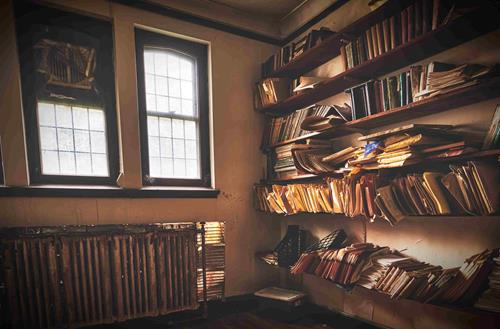Photo credit: JF Martin
To carry out the wishes in a will you need to produce the original to the Probate Registry. But: sometimes a will gets lost. What happens if this has happened to a deceased loved one of yours? Someone could have thrown it away in a big clear out. Destroyed in a fire. Hidden in such a secure hiding place that people might not find it for generations (in a safe, buried under a tree, at the end of the garden?)
Good news/ bad news.
There’s good news and bad news in these situations. Starting with the good news: if you have strong enough evidence of the existence and contents of the last will it is possible to have the will honoured. The bad news is that when you make an application to court to do this the legal presumption is always that if a will can’t be found, then the testator destroyed it with the intention to revoke it. You need some pretty serious evidence to overturn this presumption, but it is possible.
Leave no stone unturned…
The take home message should always be that if you can’t find an original will at first you should go to very long lengths to try to find it. Finding the original will provide certainty, and also save a LOT of avoidable legal costs. Make sure that you:
- contact the National Will Register;
- go through every single piece of paper in the house/ storage/ shed;
- searched under the floorboards/ behind kitchen counters/ emptied the attic;
- rotavate the garden lawn and dig up the flower beds (*)… and
- carry out exhaustively every check you can think of: and keep a list of what you’ve done
…if you still can’t find the original it could be time for you to make an application to the Probate Registry under s54 of the Non-Contentious Probate Rules 1987. (*) n.b. rotivating the lawn and flower bed is a joke… but also an example that if you have a hunch: you should follow it.
Application under s54 of the Non-Contentious Probate Rules 1987
You can make an application under these rules where you:
- have a photocopy of the will, or
- have very strong evidence of what was in the original will (e.g. notes from meetings with solicitors, or notes etc).
There’s still a presumption that you have to overcome. If you can’t find the will: it was destroyed on purpose with the intention to revoke.
In your application you need to give of (1) how you or the testator lost the original (e.g. if the deceased had a habit of losing or throwing things away) (2) what you’ve done to try to find the original (see the notes above about searching in every nook and cranny), and (3) and some bona-fide evidence that the testator didn’t/ wouldn’t/ couldn’t have intended to revoke the will. For example: you could demonstrate that the testator had an ongoing strong loving relationship with everyone who benefits under the (lost) will.
Right to respond
If there are people who might have missed out because of the terms of the will (e.g. a child written out of the will, or a large charitable gift reducing the estate for the residuary beneficiaries) then the Probate Registry will give those people a chance to respond to the application. If there is a contest then the application goes to Court. There is evidence from the executors who have put the application together and those people who may lose out. The courts will then decide whether the presumption that the testator destroyed the will with the intention to revoke it stands. It is a tough one to overcome.
Conclusion: always best to find the original will
As you can see, getting the wishes in a lost will carried out where the original can’t be found is an extremely laborious process. The lesson in all cases is: keep the original safe so that these legal gymnastics aren’t necessary. The National Will Safe provide an excellent storage solution and also register each will with the National Wills Register. Failing that: ensure that you keep the will somewhere that is safe and secure, and also ensure that all of the executors know exactly where to find it.


